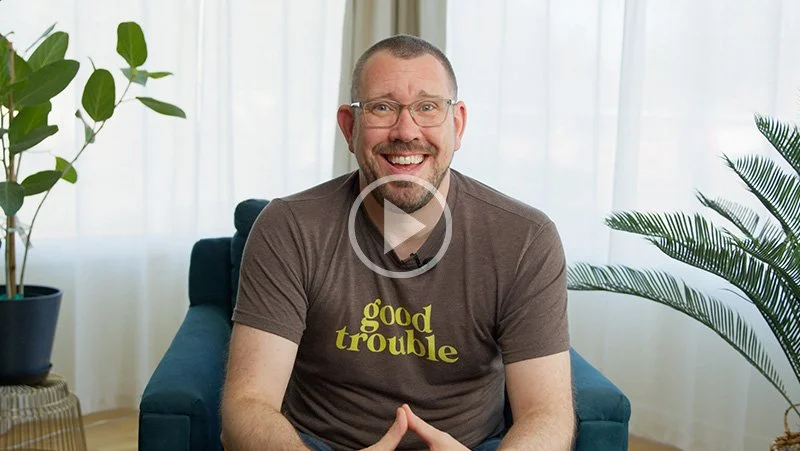Workplace Culture: Can Employees Speak Truth to Power?
Welcome to the #culturedrop. Every Tuesday, Galen Emanuele emails tools to advance leadership skills, team culture, and personal growth. No spam, just great content. Sign up now to get it in your inbox.
An important element of great workplace culture: can employees speak truth to power?
If you don’t have a culture where people feel safe telling the truth, especially hard truths, then there can be fires burning all around, and no one will say anything.
This topic is something that’s critical to healthy culture and long-term success: creating an environment where people feel genuinely safe to speak up and tell the truth. When employees can give real, honest feedback without fear of backlash, it improves trust, loyalty, and morale across the board.
No safety, no honesty.
One of the most important questions any leadership team can ask is this: Do our people feel safe telling us the truth?
If the answer is no, then it’s a guarantee that feedback will be reluctant and filtered, issues will be hidden, and often, problems won’t be addressed until they explode. If people believe that being honest could be risky to themselves and come at a cost, they’ll keep quiet.
Creating a space where people can speak freely matters if you want to truly understand what’s “really” happening inside the company, as build trust and honesty that travels upwards in the org.
“Leaders need to openly acknowledge that they aren’t perfect, don’t know everything, and acknowledge that they have blind spots.”
Ask for feedback, genuinely.
Inviting feedback has to be more that just about checking a box, it has to come from a place of vulnerability and authenticity.
Leaders need to openly acknowledge that they aren’t perfect, don’t know everything, and admit that they have blind spots. The purpose of asking for feedback is to shed light on those things in order to help leaders and the organization to improve. Employees can help leaders see things they otherwise won’t, and there’s immense value in that.
Make it clear: “We’re not perfect, and your feedback helps us see what we might be missing. It gives us the opportunity to improve as an organization, and your experience as an employee.”
“When someone gives tough feedback, they’re taking a personal risk.”
Responding well is a must.
This reality is a million times more important than asking for input; asking for honest input and then reacting poorly is massively worse than not asking at all.
When someone gives tough feedback, they’re taking a personal risk. How leadership responds sets the tone for any future conversation. The first time someone has the courage to tell the truth, and you respond poorly to it will be the last time that person, or their coworkers, will ever be honest with you.
When leaders validate what they hear — even if it’s tough, or they don’t agree with it — they build trust. It proves that you mean what you say and that you actually value their perspective.
And trust compounds over time. Get it right the first time and you’re more likely to hear what you really need to hear down the road as well.
Make it a leadership priority.
Building a culture where people speak truth to power doesn’t happen passively. It requires intention. It needs to be prioritized and championed at the highest levels of the organization. Leaders have to consistently reinforce that open, honest communication is welcome and safe.
“Leaders have to consistently reinforce that open, honest communication is welcome and safe.”
It’s not about making leadership feel comfortable. It’s about making employees feel empowered to name what’s not working, to advocate for change, and to trust that their voices matter.
Leaders need to ask and answer these questions:
Do we create an environment where people can speak truth to power?
If so, how exactly are we doing that?
And most importantly, if we aren’t doing that, how would we know?
Final thoughts.
If people in your organization don’t feel safe being honest, there’s a good chance that at least some things are broken or on fire and you don’t know it. Toxicity can thrive in silence. Dysfunction hides when feedback is dangerous or seen as a threat to power.
Creating a culture where truth-telling is encouraged, welcome, and safe isn’t easy but it’s essential to healthy team culture. Organizations that get this right are able to learn and fix what’s not working, evolve, grow, and build trust that lasts.
Related Blogs:
Build Trust & Relationships With This Brilliant Phrase
Leaders Need Conflict & Feedback Mastery
Defensiveness Kills Communication & Relationships
Want more?
This article was created by Galen Emanuele for the #culturedrop. Free leadership and team culture content in less than 5 minutes a week. Check out the rest of this month's content and subscribe to the Culture Drop at https://bit.ly/culturedrop








